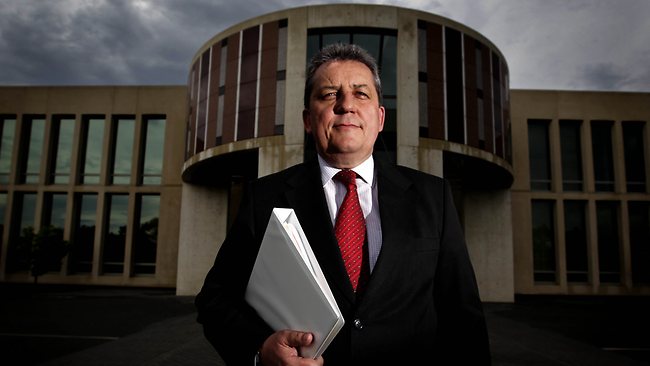External validation gets thumbs up
EXTERNAL validation is arguably the most important proposal in the federal government's skills statement, experts say.
TRAINING advocates have backed plans to deploy external 'validators' to check that vocational graduates can do what they've been trained for, under federal government proposal to stamp out rorts and improve training quality.
Commentators say “external validation” is one of the few genuinely new proposals in the government’s 84-page skills statement, which it released on Monday. But the government has only agreed to trials, and the details remain hazy.
Announcing a $9 billion funding package to be negotiated at the Council of Australian Governments meeting next month, Prime Minister Julia Gillard said the centrepiece reforms – a “HECS for skills” loan scheme and a national training “entitlement” up to certificate III level – weren’t enough.
“We can’t pour extra money into a patchy and inflexible system … [but] we also need a focus on quality.”
The statement says the expansion of private training has created more choice, but also concerns that providers operate with “their eye on the money and not education”.
It says training rackets such as the recent migration-related rorts have the potential “to undermine public confidence in qualifications and providers”.
External validation pilots will be conducted in qualifications identified “as being of most concern”, it says, with a national approach to be implemented from 2014–15 if the pilots prove successful.
“External validation will involve independent industry experts auditing a training provider’s assessment process and, in some cases, validating the competency assessments that have been made for individual students.”
Skills Australia, which recommended the measure in last year’s ‘Skills for Prosperity’ roadmap, said it was delighted with the proposal.
CEO Robin Shreeve said vocational training was “catching up” with schools and universities.
“Most secondary school examination bodies have quite sophisticated validation and moderation procedures for their assessments, and universities often use external examiners to check standards,” Mr Shreeve said.
“These systems involve a subject or discipline expert with an industry or teaching background, and assessment experience, checking the assessments of a sample of students of a particular provider.
“Some might argue it is complex, and some might even say an imposition on providers. But we believe it is essential to ensure a certificate III awarded by one provider is to the same standard of a certificate III awarded by another. It’s great for students and industry.”
But the Australian Council for Private Education and Training said it wasn’t necessary to check individual students’ assessments.
“I don’t think you need an army of independent assessors to go around and measure up every student,” said CEO Claire Field.
“That’s not proven and a very costly way of going about it.”
Ms Field said the pilots should be modelled on ACPET’s voluntary pilot scheme, under which about 20 Victorian and South Australian training providers so far have compared assessment materials, tasks and decision making.
ACPET plans to extend the scheme nationally this year, and to involve industry experts.
Victorian Skills Minister Peter Hall supported the external validation proposal as a “sensible measure to ensure [people] are being trained at a level suitable to the needs of industry”.
He said Victoria had discussed a rating scheme, with colleges assessed by industry associations or independent panels.
RMIT University policy analyst Gavin Moodie also backed the proposal. “The biggest problem with Australian vocational education is ensuring the quality and standards of qualifications,” he said.
But Dr Moodie said colleges and teachers needed to be involved in the validations.
University of Melbourne tertiary education expert Leesa Wheelahan said it would be “appalling” if industry bodies were given the job.
“It requires the involvement of teachers – people who know about teaching and learning and what counts as valid and reliable assessment,” Dr Wheelahan said.
“But I expect the industry peak bodies will use this as an opportunity to tighten their grip on the system and make it even narrower than it already is.”
However the Australian Industry Group said quality remained “a serious concern” for industry.
“It is essential that we see a significant lift in the quality across the sector to underpin the re-gearing of the training system,” said incoming chief executive Innes Willox.
The peak TAFE body said validations had been necessitated by “the early failures to open up the training market”.
“We have seen colleges collapsed, student fees lost, a [funding] grab by private colleges [and] confidence in the training system shaken,” said TAFE Directors Australia chair Stephen Conway.
But the Australian Education Union said the proposal signalled a shift to “a low trust/high surveillance approach”.
AUE TAFE secretary Pat Forward said the skills statement suggested there would be no extra resources for regulatory bodies, even though both state and federal regulators would be required to undertake extra quality checks.
“It is insufficient to attempt to enforce external surveillance of outcomes and completions unless these things are adequately resourced,” Ms Forward said.




